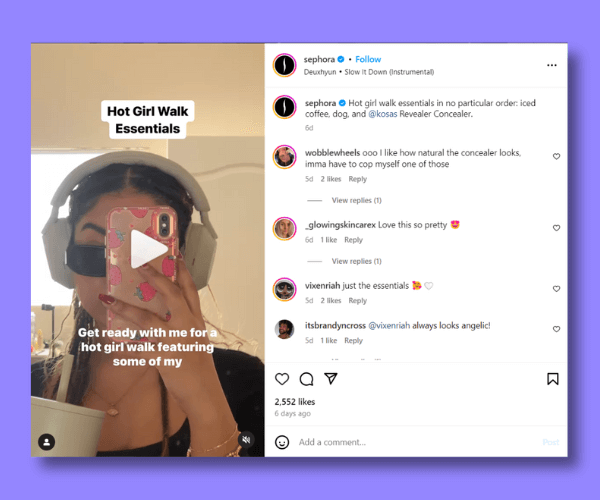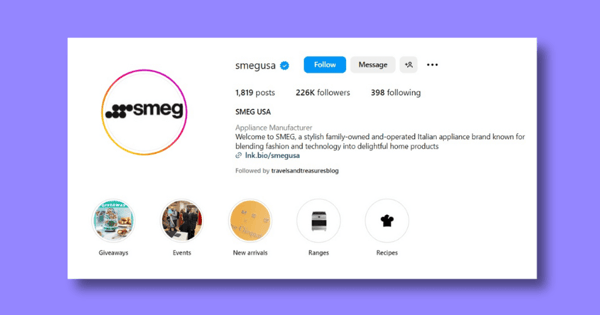In today's ever-evolving digital landscape, the role of SEO cannot be emphasised enough when it comes to boosting online visibility and driving organic traffic to websites.
But let's not forget about the significant impact that social media has on SEO efforts.
In this article, we'll delve into the world of social media and explore how it can be effectively leveraged to enhance SEO and increase brand awareness.
So, let's dive right in and uncover the strategies that can take your SEO and social media marketing to new heights.
- How are social media and SEO connected
- Social signals and SEO rankings
- How does utilising social media platforms as search engines help with your SEO efforts
- 9 ways to integrate social media and SEO strategies
How are social media and SEO connected?
When it comes to SEO success, social media platforms offer immense potential. By leveraging platforms like Facebook, X (Twitter), Instagram, TikTok, YouTube, and LinkedIn, you can build a strong social media presence that complements your SEO efforts.
This social media presence acts as a bridge, connecting your brand with a vast audience and driving traffic to your website.
To optimise your social media profiles for better SEO visibility, it's important to choose the right platforms that align with your target audience and industry. By understanding your audience's preferences and behaviours, you can tailor your social media strategy to engage with them and drive them towards your website effectively.

5 Steps to Define and Reach Your Social Media Target Audience
Furthermore, when creating your social media strategy, ensure it aligns with your SEO goals. By incorporating relevant keywords and hashtags into your social media posts, you can increase the visibility of your content and improve your search engine rankings.
Remember that social media marketing is not just about self-promotion. It's about sharing valuable content that resonates with your audience.
By consistently sharing high-quality and relevant content, you can not only foster engagement and loyalty but also enhance your SEO efforts.
To get started, feel free to download our social media audit templates from the Resources section.
Social signals and SEO rankings
One aspect of social media that significantly impacts SEO rankings is social signals.
Search engines, such as Google, consider social signals as a ranking factor and use them to determine the credibility and relevance of a website. The more social signals your content receives, the higher the chances of it ranking higher in search engine results.
To maximise social signals for better SEO performance, it's essential to encourage social sharing of your content:
- Engage with your audience.
- Prompt them to share your content.
- Include clear call-to-actions that motivate them to take action.
By leveraging user-generated content, such as reviews, testimonials, or customer stories, you can amplify social signals and boost your SEO rankings.
 Source: @sephora
Source: @sephora
To track and analyse the impact of social media marketing on your SEO efforts, tools like Google Analytics can provide valuable insights. By monitoring metrics such as referral traffic, bounce rate, and conversions, you can gain a deeper understanding of how social media drives engagement and conversions.
How does utilising social media platforms as search engines help with your SEO efforts
A crucial tactic to amplify your SEO efforts is to leverage social media platforms as search engines themselves.
Social media platforms have evolved beyond being mere communication tools and have become robust search engines in their own right.
When users are looking for information, products, or services, they often turn to social media platforms first. They utilise the search functionalities of platforms like Facebook, Instagram, TikTok, X (Twitter), LinkedIn, and YouTube to find relevant content and explore various topics. This behaviour presents a unique opportunity for businesses to optimise their social media profiles and posts to increase visibility and drive organic traffic.

The Complete Guide to Social SEO: What It Is and How to Master It
To make the most of this opportunity, start by optimising your social media profiles with relevant keywords, just as you would for traditional search engines. By including at least one relevant keyword in your profile bio, descriptions, and captions, you enhance the chances of your content appearing in search results when users search for related terms within the platform.
Additionally, ensure that your social media content is valuable and engaging. Consistently share high-quality posts that provide insights, solutions, or entertainment to your target audience. By doing so, you establish yourself as a trusted source of information and increase the likelihood of your content being shared, increasing its reach and visibility.
Utilise hashtags strategically to categorise your content and make it discoverable for relevant searches. Conduct thorough research to identify popular and relevant hashtags within your industry or niche. Incorporating these hashtags into your posts can significantly improve their visibility and attract a wider audience to your profile.
Engaging with your audience is crucial for both search engine optimisation and social media success. Actively respond to comments, messages, and inquiries from your followers. By fostering conversations and building relationships, you not only boost engagement but also increase the likelihood of your content being shared and recommended.
Collaborate with influential figures or complementary businesses within your industry. Engaging in partnerships or co-marketing initiatives can help expand your reach and attract a wider audience. When working with influencers or other businesses, ensure that their values align with your brand, and their audience is relevant to your target market.
Remember, social media platforms employ their algorithms to dictate what content users see.
Understanding these algorithms can help you optimise your content for increased visibility. Stay updated with platform-specific algorithms and best practices to ensure maximum exposure for your social media efforts.

How Does the TikTok Algorithm Work: Myths and Best Practices
In summary, treating social media platforms as search engines and optimising your content for visibility within these platforms can effectively improve your SEO. By optimising your social media profiles, creating valuable content, utilising relevant hashtags, engaging with your audience, collaborating strategically, and aligning with platform algorithms, you can enhance your organic reach, drive website traffic, and ultimately improve your search engine rankings.
9 ways to integrate social media and SEO strategies
To truly unlock the power of social media for SEO, it is imperative to adopt an integrated approach that harmonises your social media optimisation and search engine optimisation strategies.
By aligning these two areas, you can unleash synergistic effects that enhance the impact of your efforts.
In this section, we will delve into effective tactics and practical tips for improving SEO with the use of social media. From optimising your social media profiles to harnessing the influence of social signals, these proven strategies will equip you with the tools needed to elevate your online presence.
- Optimise your social media profiles for SEO
- Create valuable and shareable social media content
- Incorporate targeted keywords and hashtags
- Engage with influencers and industry leaders
- Leverage social media advertising
- Share and promote your blog content on social media
- Measure and monitor social media metrics
- Encourage social sharing and engagement
- Leverage user-generated content
1. Optimise your social media profiles for SEO
When it comes to integrating social media and SEO, optimising your social media profiles is a crucial step. Make sure your profiles on platforms like Facebook, Instagram, Twitter, and LinkedIn are fully optimised with relevant keywords. Incorporate keywords in your bio, About section, and even in your social media handle or username. This will improve the chances of your profiles appearing in search engine results when users search for specific keywords related to your industry or niche.
For example, if you run a bakery business, include keywords like "bakery," "freshly baked goods," and "artisan desserts" in your social media profiles. This will help search engines recognise your profiles as relevant to these keywords, increasing your visibility in search results.

2. Create valuable and shareable social media content
To enhance the impact of social media on your SEO, focus on creating valuable and shareable content. Provide informative, engaging, and unique content that resonates with your target audience. This can include blog posts, infographics, videos, or even user-generated content.
When your audience finds your content valuable, they are more likely to share it with their own followers, increasing the likelihood of earning backlinks and social signals. For instance, if you're a fitness brand, create content like workout videos, nutritional tips, or success stories that inspire and educate your audience. Encourage them to share this content, which can generate organic traffic to your website and improve your SEO ranking.
3. Incorporate targeted keywords and hashtags
To improve the discoverability of your social media content, incorporate targeted keywords and relevant hashtags. Conduct keyword research to identify the most relevant and high-performing keywords for your industry or niche. Use these keywords strategically in your social media posts, captions, and hashtags.
For example, if you're a travel agency specialising in adventure tours, use keywords like "adventure travel," "outdoor exploration," or specific destinations in your social media posts. Additionally, use popular and relevant hashtags such as #wanderlust, #adventure, or specific location-based hashtags like #hikinginColorado. This way, your content becomes more visible to users searching for related topics and increases the likelihood of attracting organic traffic to your website.
4. Engage with influencers and industry leaders
Building relationships with influencers and industry leaders can not only expand your social media reach but also open up link-building opportunities. Identify influential individuals or organisations in your industry and engage with their content by liking, commenting, and sharing. This helps establish a rapport and may lead to collaborations or mentions that can generate valuable backlinks to your website.
For instance, if you have a skincare brand, reach out to beauty influencers or dermatologists in your niche. Engage with their content, share their expertise, and build a genuine connection. Over time, this can result in them referencing your brand in their content or linking back to your website, which boosts your SEO efforts.
5. Leverage social media advertising
Social media advertising is a powerful tool to amplify your SEO efforts. Platforms like Facebook, Instagram, Twitter, and LinkedIn offer robust advertising capabilities that allow you to target specific demographics, interests, and behaviours.
Investing in targeted ads that align with your SEO goals can help you reach a wider audience, increase brand awareness, and ultimately drive more organic traffic to your website. For example, if you're an e-commerce store selling sustainable fashion, use social media ads to promote your eco-friendly products to environmentally conscious individuals. This increases the chances of attracting visitors who are more likely to engage with your website and boost your SEO ranking.
6. Share and promote your blog content on social media
If you have a blog, it's essential to promote your blog content on social media. Each time you publish a new blog post, share it across your social media channels, and encourage your followers to read and share it further. Include captivating snippets or an attention-grabbing headline to pique their interest.
Promoting your blog content on social media not only helps drive traffic to your website but also increases the potential for backlinks. When your audience finds your blog posts valuable, they may include links to your content on their own websites or share it within their networks. This generates organic backlinks, which are crucial for improving your SEO rankings.
7. Measure and monitor social media metrics
To assess the impact of your social media efforts on SEO, it's important to measure and monitor relevant metrics. Utilise social media analytics tools like Facebook Insights, Instagram Insights, or X (Twitter) Analytics to track engagement, reach, and referral traffic. Or opt-in for a social media management tool with a robust reporting feature, such as Sendible's Reports hub.
Identify which social media platforms and types of content generate the most engagement and referral traffic to your website. This data can inform your future social media and content strategies, allowing you to focus on what works best for your target audience. By optimising your social media efforts based on data-driven insights, you can further enhance the impact on your SEO.
8. Encourage social sharing and engagement
Make it easy for your audience to share your content across social media platforms by incorporating social share buttons on your website, blog posts, and other relevant pages. These buttons allow visitors to share your content with just a few clicks, increasing the visibility and reach of your content.
Additionally, encourage engagement by prompting your audience to comment, like, and share their thoughts on your social media posts. Engaging with your audience and fostering conversations not only boosts your social media presence but also generates social signals that can positively impact your SEO.
9. Leverage user-generated content
User-generated content (UGC) refers to any content created by your customers or followers, such as reviews, testimonials, photos, or videos. UGC not only provides social proof but also offers an opportunity to enhance your SEO efforts.
Encourage your audience to create and share UGC by running contests, featuring their content on your social media channels or website, and providing incentives like discounts or giveaways. When users generate content that includes links or references to your brand, it can positively impact your SEO ranking through organic backlinks and increased brand visibility.
Wrapping it up
In conclusion, integrating social media into your SEO strategy can have a tremendous impact.
By establishing a strong social media presence, optimising your profiles, maximising social signals, and aligning your social media and SEO strategies, you can significantly enhance your online visibility, drive more organic traffic, and boost brand awareness.
Don't wait any longer.
Take action today and implement these strategies to unlock the full potential of combining SEO and social media. As the digital landscape continues to evolve, staying ahead of the curve by harnessing the power of social media is crucial. So, dive into the endless opportunities that social media offers and witness your SEO efforts thrive.







